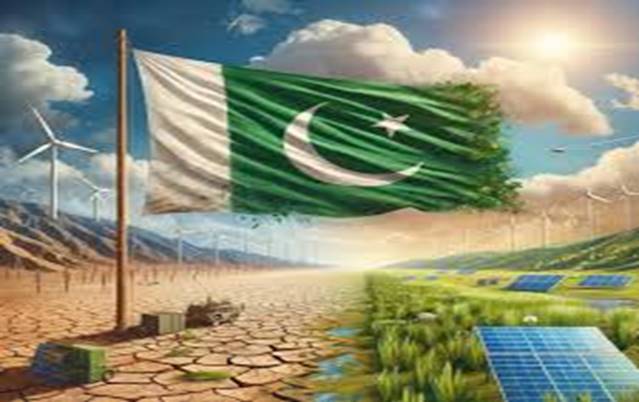
Linkedin
Climate Change: Serious Challenges for the Future of Pakistan and the Region
By Ghulam Mustafa Syed
In the context of global environmental changes and global warming, South Asia, especially Pakistan, is facing multifaceted problems and grave challenges.
Indeed, climate change is a major threat to Pakistan and the wider region. The change is causing rising temperatures, unpredictable weather patterns, and natural disasters. These changes are affecting agricultural production, water availability, and overall economic stability. In particular, melting glaciers in the Himalayas are exacerbating water scarcity problems and leading to conflicts between neighboring countries over water resources. Rising temperatures are causing frequent and severe droughts, floods, and heat waves, resulting in food insecurity from damage to agriculture and increased migration of rural populations to large cities. It is manifestly felt and causing serious social and economic problems in the cities as well.
As a result of climatic imbalance caused by environmental changes, where Pakistan is facing severe water shortage and severe weather, long-term stormy rains and floods have pushed the country into a vortex of serious economic, social, administrative, and political crises. If this situation continues, it may be difficult for Pakistan to maintain its existence geographically, and it may also affect and change the South Asian region geographically.
Problems and challenges of South Asia especially Pakistan. Among the environmental challenges and threats that South Asia, including Pakistan, is facing due to global climate change and global warming are water scarcity, extreme weather events, loss of biodiversity and health impacts.
Pakistan is already facing the problem of water scarcity which has been exacerbated by the effects of climate change such as changing rainfall patterns and melting ice glaciers. The increasing frequency and intensity of extreme weather events such as floods, droughts and heat waves have created threats to populations and infrastructure. Habitat destruction, pollution, and climate change are also leading to the loss of biodiversity in the region, affecting ecosystems and wildlife. Climate change is also contributing to the spread of diseases, heat-related illnesses, and malnutrition and is affecting the health of people in Pakistan.
If these challenges are not given immediate attention, Pakistan and the entire region may suffer significant negative effects on economic, social and environmental bases. Among them, economic losses, social changes, and environmental degradation are particularly noteworthy.
An immediate consequence of non-availability will be economic losses as it may reduce agricultural production leading to food security issues. Food shortages will occur which will have very serious consequences for farmers. There may be heavy economic losses. Extreme weather events or water shortages will cause displacement of populations. This could lead to social tension and unrest. In addition, the effects of climate change will cause damage to ecosystems and wildlife, which can have long-lasting effects on the environment and cause further climate change. Continued environmental degradation and climate change may also have geopolitical implications. These will likely lead to conflicts over resources and pose major challenges to regional stability.
There is an urgent need for collective and individual actions at the level of the government, institutions, and social and public circles of Pakistan to avoid or reduce the terrible adverse effects of climate change to fight against global warming and other environmental changes for future generations.
Controlling the effects of environmental change: Necessary measures to prevent the adverse effects of climate change :To protect the future of Pakistan and the South Asian region, urgent and collective actions are needed at various levels. First of all, the governments of these countries should implement and strengthen environmental policies, invest in renewable energy, and sustainable agriculture practices. Promote and encourage public transport.
The second step would be at the institutional level. Institutions should research the impacts of climate change, develop adaptation strategies and integrate climate change considerations into development planning.
The third step must be taken at the public level. Public circles should raise awareness among people about climate change and promote sustainable living practices. Support local environmental initiatives and advocate for changes in the environmental policy.
It is imperative for Pakistan and the region to implement sustainable measures to mitigate the effects of climate change and protect the well-being of its population. The result must be positive. By taking active measures to deal with the current climate changes and serious environmental threats, the negative effects in Pakistan and the South Asia region can be reduced if not eliminated.
Endangered populations can be protected and a more sustainable future can be ensured for future generations. Cooperation between governments, institutions, and civil society is very important to deal with this global problem.
(The author is a Karachi-based journalist)

